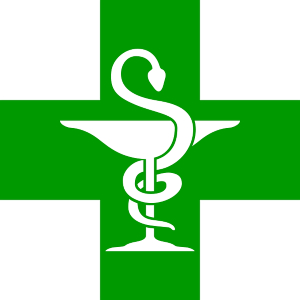What do you think people in the Stone Age did when their teeth hurt?
Actually, they did something about tooth decay that is not far from what you get today when the dentist discovers holes in your teeth: In Slovenia, scientists have discovered a dental filling made of bee wax – and it is 6500 years old!
Contrary to popular belief, religious rituals were not the only form of healing in the Stone Age and ancient times. Medicine has existed for thousands of years – although not in the form we know today. Some therapies are very questionable from today’s point of view – bleeding people to cure them of any disease is definitely not a good method of treatment. And drilling holes in the head to make the disease leave the body is even worse. Nevertheless, the desire to cure disease and make life on earth less dangerous is very old – as are the scientific attempts to explain it. Let’s go back in time and discover how medicine developed!
In prehistoric times, religious rituals performed by witch doctors were the usual therapies, involving talismans and drugs. Today, however, we also know of difficult but successful operations in which patients survived.
In ancient Egypt, medical treatments were summarised and passed on in text form, and the Egyptian king Djoser’s chief minister, Imhotep, is thought to have been one of the first physicians (although there is little evidence) and later worshipped as the Egyptian god of medicine.

In ancient Greece, he was identified with the god of medicine, Asclepius. The cult of Asclepius played an important role in ancient Greek medicine. This religious approach included the worship of Asclepius and his daughter Hygieia, the goddess of medicine and hygiene. In the temple of Epidaurus, ‘temple sleep’ was practised as a healing method. Patients were ordered to sleep in the temple for one night. In their dreams, priests or Asclepius himself would tell them the appropriate treatment. Illness was seen as a punishment from the gods, and healing was based on religious rituals.
The ancient Greeks gathered a lot of medical knowledge from other cultures, and – apart from religious medicine – their own scientific approaches went down in history. The physician Hippocrates of Cos, who lived from 460 to 380 BC, is now regarded as the father of modern medicine. After learning medicine from his father, he undertook many journeys to expand his knowledge. In his scientific texts, he tried to describe diseases in detail and searched for a natural cause. He didn’t believe that illness was the will of the gods, but examined each person and tried to find an individual approach to healing – in contrast to the standardised religious rituals. Although he was not famous for finding the correct therapies, his new scientific way of treating patients was revolutionary. In particular, the oath of conduct for physicians that he created has made him famous to this day! Hippocrates’ oath is still used by every doctor. Although it has been modernised, some elements, such as the doctor’s duty to maintain confidentiality, are still important and are even established in law.

The Romans were influenced by Greek medicine. One of the most famous doctors of the time was Galen, who studied the anatomy of the body. Although he often came to the wrong conclusions (perhaps because he could only study anatomy on monkeys), he did discover, for example, that arteries contain blood and that the heart moves it around the body. In the Roman Empire in general, the public health system was very progressive, with baths and gymnasiums open to the public and an advanced sewage system.
Many of the ancient medical theories were passed on through the centuries – copied by medieval monks, they have survived to the present day. For example, the theory of humours, based on a Greek philosopher’s theory of the elements, was used until the 19th century. The concept is that there must be a balance between four humours in the body – blood, phlegm, choler and melancholy. If they were out of balance, this would cause illness. As we now know, this theory is completely wrong. Nevertheless, it was a milestone in the attempt to explain disease scientifically and find the best treatment – independently of the will of the gods.
The ancient origins are still present in our everyday lives – as pharmacy signs, often showing the rod of Asclepius or the bowl of Hygieia, or as the Hippocratic oath, which allows us to trust our doctor and ensure that his treatment methods are scientific.
When we look back at the beginnings of modern medicine, we can be grateful for all that has been achieved over the past centuries: Vaccines and antibiotics have saved millions of lives. But had it not been for the ancient physicians who began to question the common belief that disease was the punishment of the gods, who knows what the world would be like today?
References
- https://de.wikipedia.org/wiki/Geschichte_der_Medizin – Wikipedia, 28/05/2023
- https://de.wikipedia.org/wiki/Zeittafel_medizinischer_Fortschritte – Wikipedia, 07/04/2023
- https://study.com/learn/lesson/medicine-history-development.html – Charlee Iddon, Study.com, 25/08/2022
- https://www.ncbi.nlm.nih.gov/pmc/articles/PMC4379645/ – Rachel Hajar, National Library of Medicine (United States), accessed 08/06/2023
- https://www.futurelearn.com/info/courses/study-medicine/0/steps/147884 – University of Glasgow, FutureLearn, accessed 08/06/2023
- https://www.britannica.com/science/history-of-medicine – Robert G. Richardson et. al., Encyclopaedia Britannica, 17/05/2023

